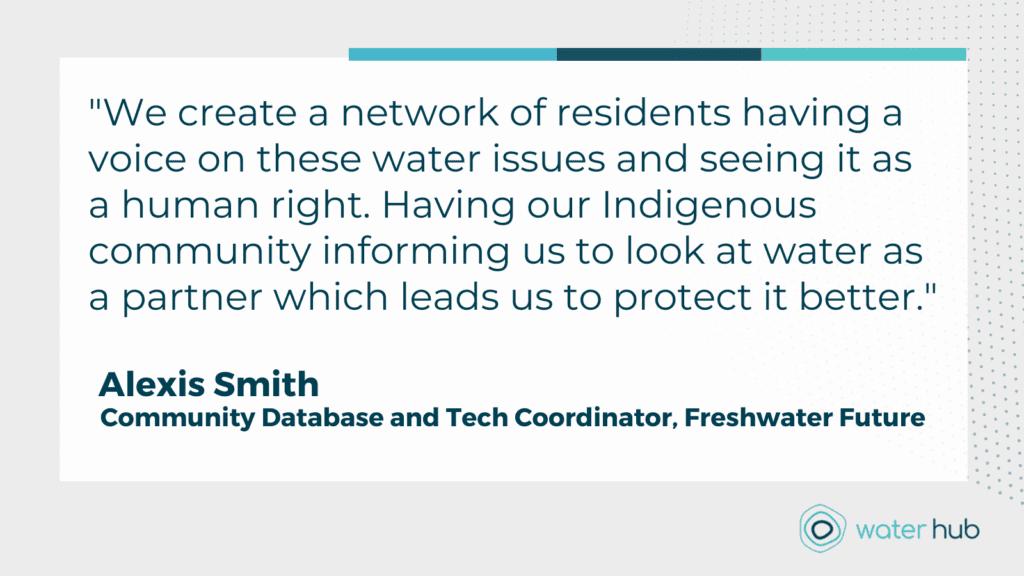In the United States, unfair water laws and outdated water infrastructure have created inequity in many communities. Despite these challenges, there are women who dedicate their lives to water justice to fight for the protection of our rivers and access to clean water and sanitation. Which is why this Women’s History Month we’re lifting up these women in the water movement:
- Director of The Junction Coalition, Dr. Alicia Smith, and Community Database and Tech Coordinator at Freshwater Future, Alexis Smith, join forces across the Midwest to increase engagement on water policies impacting low-income communities. They focus on root causes; the issues they address range from harmful algae blooms and the removal of lead pipes to community involvement on water affordability committees. Listen to them dive into the details and outcomes of this work and why it matters on this episode of the Water Loop podcast.
- Co-Executive Directors of the Milwaukee Water Commons, Brenda Coley and Kirsten Shead’s proximity to Lake Michigan along with the three rivers weaving through the city inspires Brenda and Kirsten about the responsibility to protect fresh water sources. Making Milwaukee a model water city has been made possible by creating blue collar green jobs like river renaturalization leads, wastewater managers, plumbers, water quality specialists, and more!
- Director of Pueblo Action Alliance, Julia Fay Bernal, works to empower Pueblo communities about their water rights and calls for #WaterBack to connect us to rivers as a living entity. She urges for an approach to water management and infrastructure through a feminist Indigenous lens to strengthen our connection to water and to ensure it keeps flowing for generations to come. This year, PAA is launching the Cultivating Roots & Resistance Youth Cohort to inspire Pueblo youth to take political action to protect their community.
- Director of Flint Rising, Nayyirah Shariff, leads a coalition of residents, organizations, and allies in pushing for stronger rules against lead pipes to create access to safe affordable water in Michigan’s low-income communities. Their advocacy includes demanding for a moratorium on water shutoffs and fighting against the development of another toxic industry plant to protect community health.
- Nana Fofie Amina Bashir, Karma Mayet, Nana A. Korantemah Pierce Williams, and Dr. Ife Afriye Fagbulu Kilimanjaro make up the Sisters of the Wind and the Warrior, an inter-community collective that works toward transforming our systems and relationships. Together they took a trip to Anishinaabe territory at the headwaters of the Mississippi River for their pilgrimage down to the Gulf of Louisiana. These women set out with the intention to heal our human connection to land and water as well as heal relationships between Black an Indigenous peoples.
Celebrating women working in water takes place this month and every month. As we continue to uplift people in the water justice movement, we invite you (or someone you know) to sign-up to be part of our Color of Water diverse expert directory. The purpose is to highlight Black, Indigenous, and People Of Color voices who’ve been traditionally overlooked in mainstream media to share their perspective on water issues we’re facing.
Join our community! Follow us on LinkedIn, Bluesky, and Instagram and sign up for our newsletter for updates on new resources, trainings, tips, and more.
